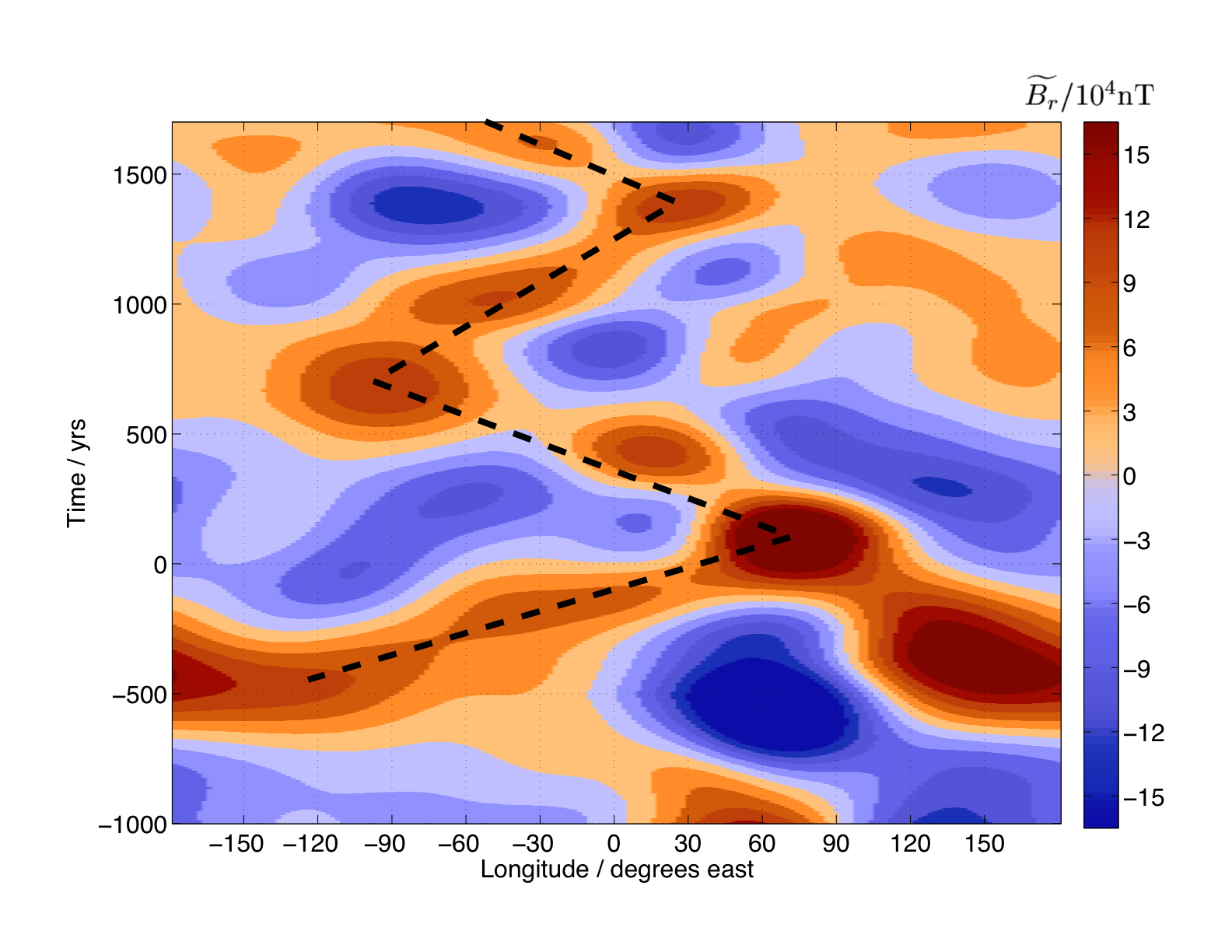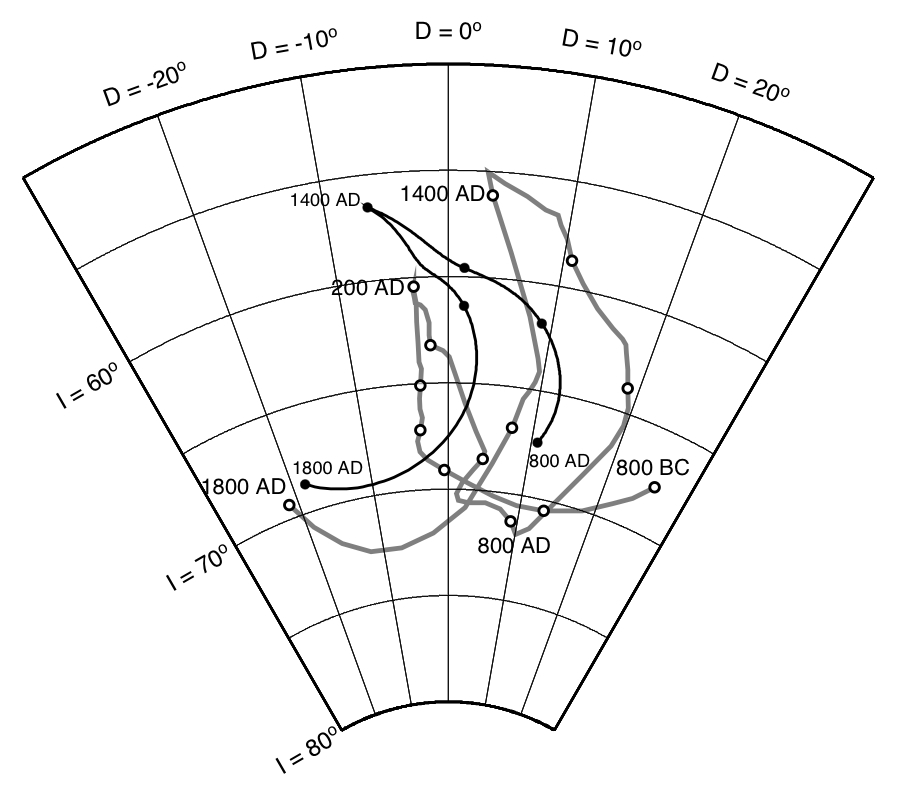Archaeomagnetic secular variation
The secular variation of the Earth's magnetic field provides the most
direct observation of the complex dynamics that maintain and
regenerate the field. Over historical timescales (last 400 years),
certain features of the field, such as the high-latitude magnetic flux
lobes, appear to have remained relatively stationnary. However, the
geometry and intensity of these lobes do change significantly over a
timescale of a few millennia.
In a study with Christopher Finlay (now at DTU, Denmark), we showed that
on millennial timescales, these high-latitude features exhibit both eastward and westward motion (Figure
1) and highlighting a new class of secular variation.
Indeed, these motions appear connected to the observed
"archaeomagnetic jerks" in Europe (Figure 2). We also show indications that
the pattern of equatorial secular variation observed over historical
timescales -- westward moving features predominantly in the Atlantic
hemisphere -- appears to have persisted over the past three millennia.
If this is the case, it likely represents a signature of core-mantle
thermal coupling.

Figure 1: Eastward and Westward drift of magnetic field features over millenial timescale at latitude 60N on the Core-Mantle boundary. The x-axis is longitude, the y-axis is time. Red (Blue) represent the intensity of the outward (inward) radial magnetic field (the axial dipole part has been subtracted). Figure taken from Dumberry & Finlay, EPSL, 2007. |

Figure 2: Bauer plot showing how the declination and inclination of main magnetic field has changed in Europe over the past 3000 years. The curves includes "cusps" which are termed archaeomagnetic jerks. The grey line is from CALS3K.2 model and the black line is a recosntruction based on the eastward and westward motion from figure 1. Figure taken from Dumberry & Finlay, EPSL, 2007. |
Some of my papers on this topic
Dumberry, M. and Finlay, C. C., 2007, Eastward and westward drift of the Earth's magnetic field for the last three millennia, Earth Planet. Sci. Lett., 254, 146-157.
Dumberry, M. and Bloxham, J., 2006, Azimuthal flows in the Earth's core and changes in the length of day at millennial timescales, Geophys. J. Int., 165, 32-46.

